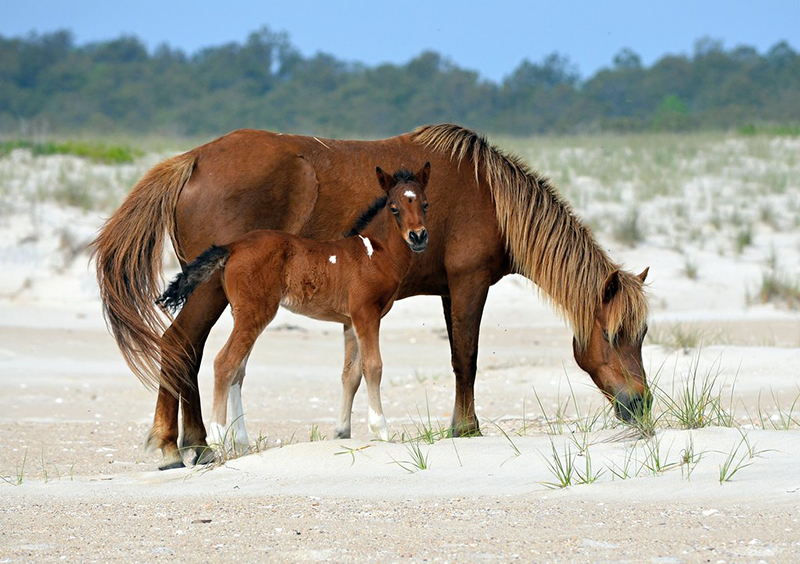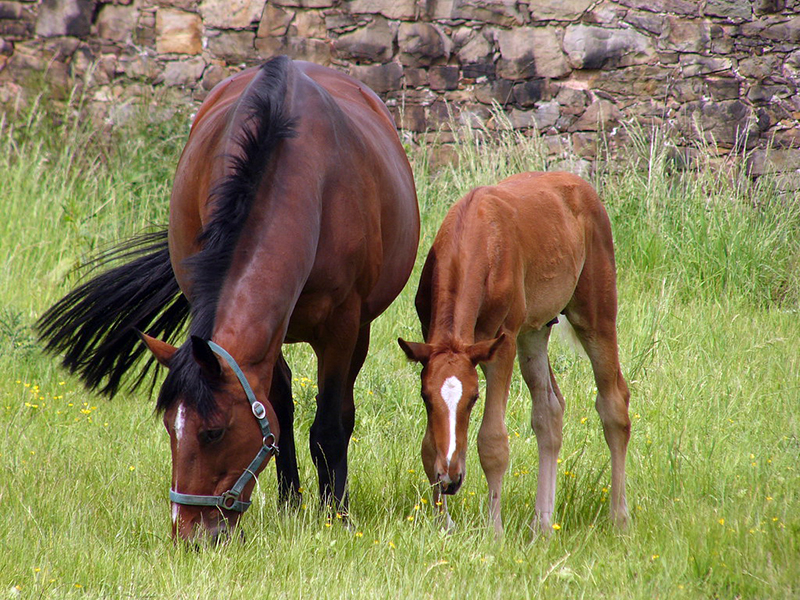You take your time to choose just the right stallion to compliment your mare. You spend painstaking hours coordinating with your vet, the stallion owners vet, and collection service. What you get, with the right timing, is your broodmare pregnant. Most people think that feeding a pregnant mare simply means upping the amount of food that she gets from the moment she is confirmed in foal, but it is so much more than that. Same as your cat or dog, your pregnant horse needs the right nutrition. This article will help teach you some key points on feeding your mare and making sure the growing foal has what it needs.

Feeding Is Most Critical Between the First & Third Trimesters
When in foal, a mare can gain 0.3 to 0.8 pounds per day. There is heavy scientific research that points to nutrition being most important during the first and third trimester.
First Trimester: Maintain Their Current Feeding Routine
Underfeeding a mare in the first trimester may result in an embryonic loss in the first month of gestation. The animal’s weight should be monitored at least weekly to make sure that she is gaining in slow, yet steady increments. Too much weight too quickly can be just as bad for the unborn foal as not enough weight being gained.
Second Trimester: Mares Need to Maintain Weight
While her weight should continue to climb slowly towards her birthing weight, a mare in the second trimester needs to be removed from any source of fescue hay.
Fescue Toxicosis Is Detrimental to the Mare
The endophyte found in fescue can cause an insurmountable amount of problems both for the mare and foal. A decreased or complete absence of milk production at birth, foaling difficulties, prolonged gestation, and thickened placentas are all commonly found when a mare beyond the first trimester has been exposed or fed infected fescue hay.
Third-Trimester: Mares Need a Boost
In the third trimester, a foal will have the majority of its physical development, leaving the mare prone to being ‘drained’ by the growing life inside of her. Once she reaches nine months, additional nutrition should be provided in the form of extra hay rations and potentially added grain that will help maximize the protein intake the foal requires for proper growth and development.

Overall, a mare and foal’s needs vary quite a bit during the course of her pregnancy and birth, leaving a lot of variables up in the air. Your mare’s nutrition has a direct effect on both her body and the resulting foal. By keeping a good relationship with your vet and making sure to check in every step of the way, you can navigate these challenges and be rewarded with a healthy mare and foal.

